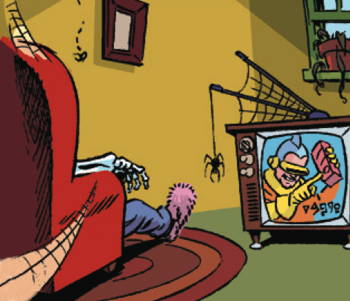October 2019
October 6, 2019
Guinea Pig Ice Cream
Apparently this is a real thing. It's sold in Quito, Ecuador, where it's the creation of ice-cream entrepreneur María del Carmen Pilapaña.
The idea for it came from the fact that guinea pigs are a traditional food in the region, so Pilapaña figured, why not make guinea pig ice cream ("Helado de Cuy").
The English-language articles don't detail how exactly how the ice cream is made. But I found the following recipe on Que News (via Google Translate):
The smoothie guinea pig mixes it with a fruit, that was also part of the experimentation, since not with all it turns out well, but she discovered that with the naranjilla or the passion fruit, also cooked, the flavor is at its point. The rest of the process is like preparing a “normal” ice cream, whipping the cream, increasing the puree of the guinea pig with that of the fruit and adding the condensed milk. After a day of staying in the freezer you are ready to serve.
The entrepreneur adds sprinkled peanuts as a dressing, to remind the 'fans' of the guinea pig, the typical dish that is served with peanut sauce.
Pilapaña offers some other odd flavors, including beetles and mushrooms.


Pureeing the guinea pig
Posted By: Alex - Sun Oct 06, 2019 -
Comments (0)
Category: Food
The Ring Gun
Great article here.
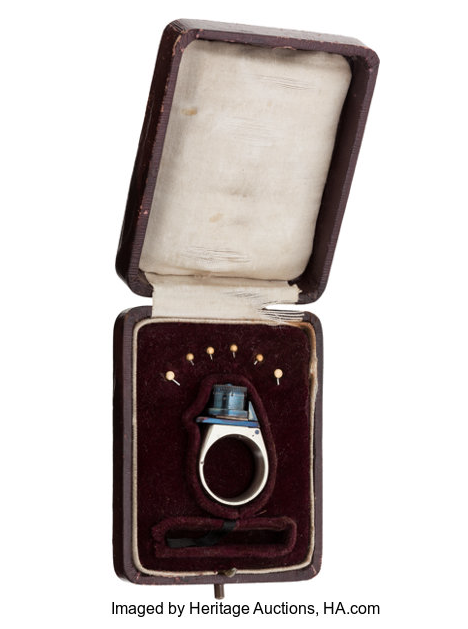
Posted By: Paul - Sun Oct 06, 2019 -
Comments (0)
Category: Enlargements, Miniatures, and Other Matters of Scale, Weapons, Nineteenth Century, Twentieth Century
October 5, 2019
Exploding Dog Food
This happened in 1973, but it seems that cans of dog food explode somewhat frequently (see here and here). So perhaps this is a 'no longer weird' phenomenon.
The Lompoc Record - Feb 9, 1973
Posted By: Alex - Sat Oct 05, 2019 -
Comments (1)
Category: Explosives, 1970s
Nude on the Moon
Posted By: Paul - Sat Oct 05, 2019 -
Comments (0)
Category: Movies, Exploitation and Grindhouse, Spaceflight, Astronautics, and Astronomy, Avant Garde, Public Indecency, 1960s
October 4, 2019
Dark Side of the Rainbow
For those who may not have heard of this classic urban legend of music, Jan Dirk Blom provides this explanation in his Dictionary of Hallucinations:It is not known who first established this pattern of thematic similarities, but from 1994 onwards it was widely discussed on internet sites such as the Usenet message board alt.music.pink-floyd and in the popular media.
As the Pink Floyd band members (save Roger Waters) have always denied deliberate attempts to synchronize their album with the movie, the Dark Side of the Rainbow is commonly designated as a cognitive illusion and attributed to a process called apophenia, i.e. an excess of perceptual or heuristic sensitivity leading to the discernment of patterns or connections in random or meaningless data.
If you're curious to experience this phenomenon for yourself, someone has helpfully posted the entirety of the Wizard of Oz on YouTube, synced to Dark Side of the Moon.
Though this raises the biggest problem with the theory: Dark Side of the Moon is about 43 minutes long, while the Wizard of Oz is over an hour long. In the video below, this is solved by simply looping the album.
Some of the synchronicities to look for:
2:20 Look for a triangle hanging in the tree, that looks kinda like the triangle on the cover of Dark Side of the Moon.
8:03 Bells start playing just as Margaret Hamilton (the Wicked Witch) rides onscreen, ringing the bell of her bicycle.
19:34 The song 'Money' starts playing when Dorothy first lays eyes on the Yellow Brick Road, which was often seen as a metaphor for bricks of gold, or money.
29:10 When the Wicked Witch, dressed in black, appears out of a cloud of smoke, the lyrics say "black, black, black..."
37:15 As Dorothy is first talking to the Scarecrow, and (in the movie) he begins singing "If I only had a brain," the song "Brain Damage" starts to play.
42:30 When Dorothy meets the Tin Man and bangs on his chest to listen for his heart, the album ends and fades to a heartbeat sound.
More info: Wikipedia
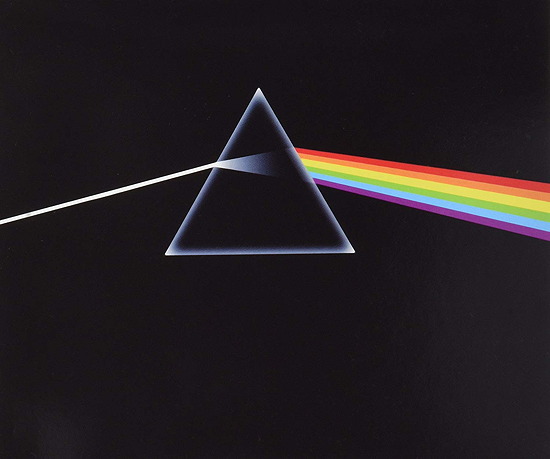
Posted By: Alex - Fri Oct 04, 2019 -
Comments (2)
Category: Movies, Music, Synchronicity and Coincidence
Artwork Khrushchev Probably Would Not Have Liked 23
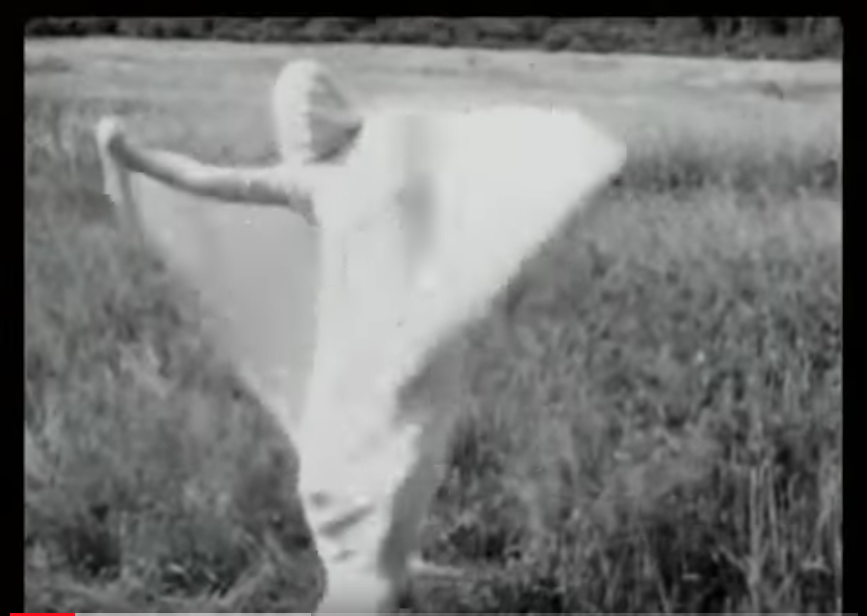
Posted By: Paul - Fri Oct 04, 2019 -
Comments (1)
Category: Art, Avant Garde, Surrealism, 1930s, Russia
October 3, 2019
Think of her as your mother
American Airlines ran this ad in magazines in 1968.
The ad became notorious enough to eventually attract the attention of academics. The following analysis comes from “‘Think of her as your mother’: Airline advertising and the stewardess in America, 1930-1980,” by Peter Lyth in The Journal of Transport History (Oct 2012):
It also inspired some copycats, such as this 1971 ad from Southwestern Bell:

However, not all American Airlines stewardesses appreciated the ad:
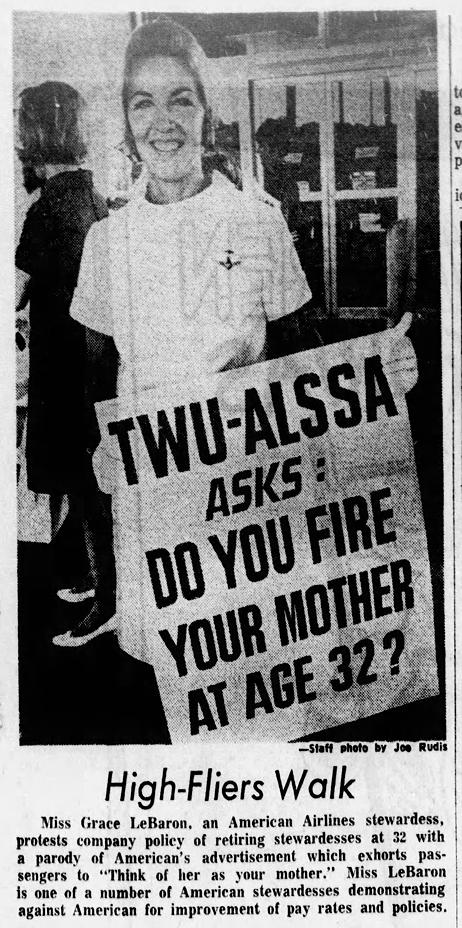
The Nashville Tennessean - Jun 29, 1968
Posted By: Alex - Thu Oct 03, 2019 -
Comments (4)
Category: Advertising, Parents, Air Travel and Airlines, 1960s
The Radium Wedding
Much more exciting than Platinum.Article source.
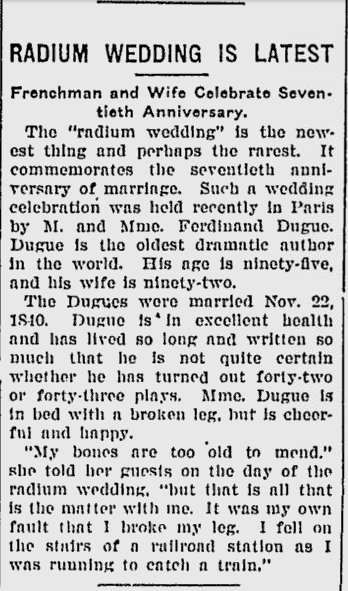
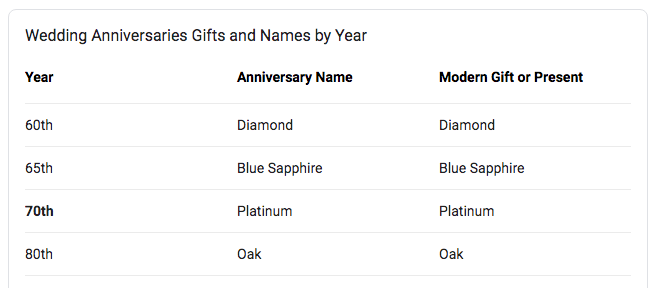
Posted By: Paul - Thu Oct 03, 2019 -
Comments (1)
Category: Anniversary, Husbands, Wives, 1910s
October 2, 2019
Deaf Applause
From the book Gestures by Roger E. Axtell:I thought there would be plenty of clips on Youtube of this 'deaf applause,' but I could only find one, very brief example taken at an opera for the deaf in Denmark:
Posted By: Alex - Wed Oct 02, 2019 -
Comments (1)
Category: Differently Abled, Handicapped, Challenged, and Otherwise Atypical
Twiggy Board Game
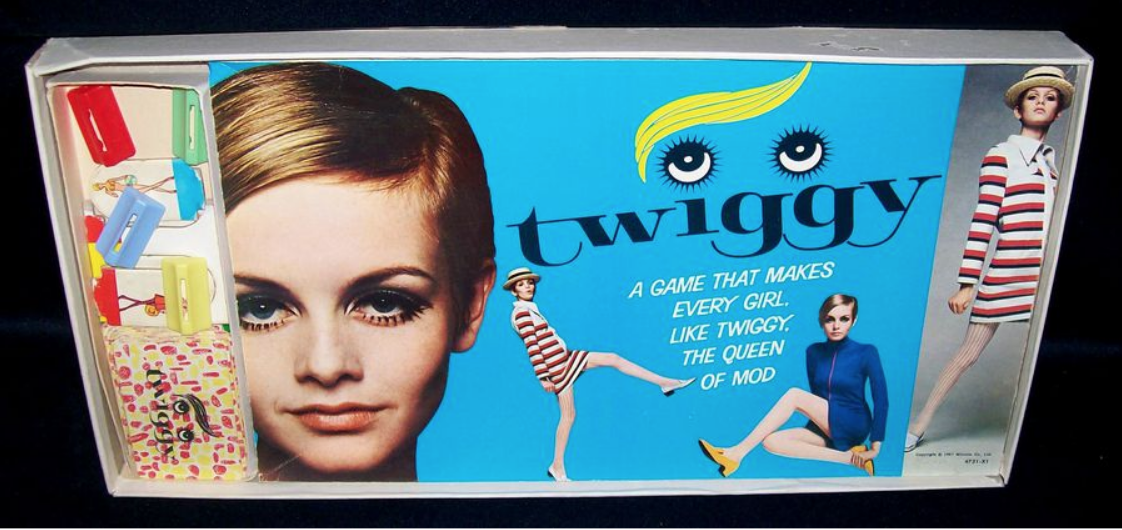
Details here.
Posted By: Paul - Wed Oct 02, 2019 -
Comments (0)
Category: Celebrities, Fashion, Games, 1960s
| Get WU Posts by Email | |
|---|---|

| Who We Are |
|---|
| Alex Boese Alex is the creator and curator of the Museum of Hoaxes. He's also the author of various weird, non-fiction books such as Elephants on Acid. Paul Di Filippo Paul has been paid to put weird ideas into fictional form for over thirty years, in his career as a noted science fiction writer. He has recently begun blogging on many curious topics with three fellow writers at The Inferior 4+1. Chuck Shepherd Chuck is the purveyor of News of the Weird, the syndicated column which for decades has set the gold-standard for reporting on oddities and the bizarre. Our banner was drawn by the legendary underground cartoonist Rick Altergott. Contact Us |
